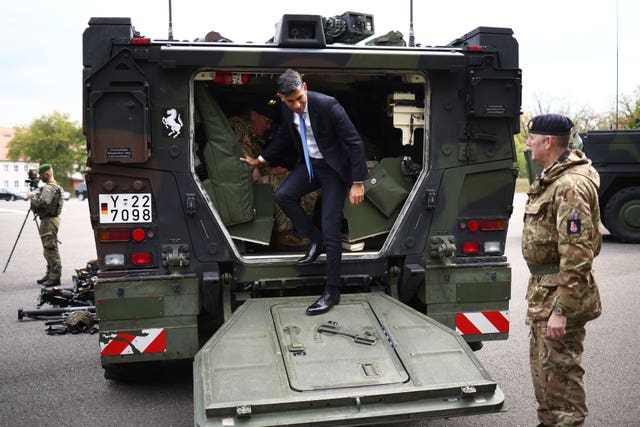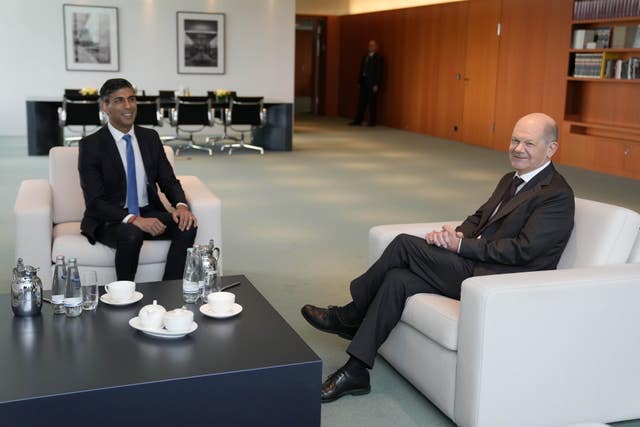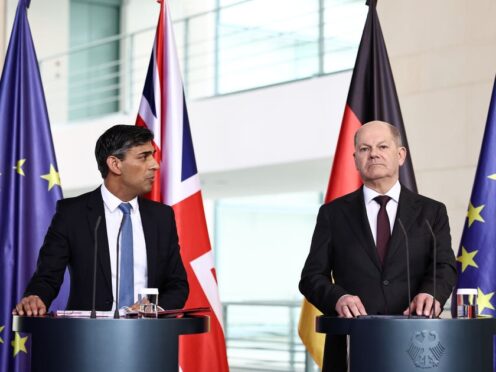Rishi Sunak said the UK and Germany will provide “unwavering support” for Ukraine “for as long as it takes”, as he visited Berlin to deepen defence and security ties between the two allies.
The Prime Minister said “every country has got different things that it can bring to the table” after German Chancellor Olaf Scholz said his decision not to deliver Taurus cruise missiles to Kyiv “will not change”.
Mr Scholz has refused to send the German-made missiles to Ukraine for fear of a wider escalation of the war, or even drawing Germany into direct conflict with Russia.

The Chancellor, pointing to Germany’s delivery of Leopard tanks and other systems, told a joint press conference at the chancellery that he would not change his mind on Taurus.
Mr Sunak said: “Every country has got different things that it can bring to the table.”
He praised Mr Scholz’s recent commitment of another Patriot missile system to bolster Ukraine’s air defence, which he called one of Kyiv’s “key needs”.
He added: “Thankfully, a wide and broad coalition of countries are united in wanting to support Ukraine. Everyone can bring something slightly different and complementary to the table. The key thing is that we’re united on wanting to support Ukraine for as long as it takes.”
Mr Scholz also underlined the allies’ continuing backing of Kyiv.

“Germany and the UK are the biggest supporters of Ukraine in Europe and we will continue our support for as long as necessary,” he said.
Mr Sunak, calling Mr Scholz “mein freund” – or “my friend”, said: “Together we will continue to provide unwavering support for our Ukrainian friends, as you said, for as long as it takes.”
He praised the German Chancellor’s “historic decision” to increase defence spending under his “Zeitenwende” policy following Russia’s full-scale invasion of Ukraine in 2022.
Mr Sunak said: “At this dangerous moment, the bond between our two nations is stronger than ever. We meet as a war rages on our continent and new threats are rising around the world.”
The two leaders agreed to deepen UK-German defence co-operation, announcing the joint development of remote-controlled Howitzer 155mm wheeled artillery systems to be fitted to Boxer armoured fighting vehicles.
They will also co-operate on producing renewable energy from the North Sea, and discussed joint efforts to tackle organised immigration crime.
It was Mr Sunak’s first visit to the German capital since entering No 10, and came after he faced pressure to visit senior politicians from one of the UK’s most powerful European allies.
Mr Sunak also on Wednesday met with chief executives of German businesses including Siemens, with No 10 saying German firms will announce new investment into the UK worth some £8 billion.
The Prime Minister’s stop in Berlin follows his visit to Warsaw, where he promised to raise defence spending to 2.5% of gross domestic product (GDP) by 2030 in the face of threats from an “axis of authoritarian states” including Russia and China.
